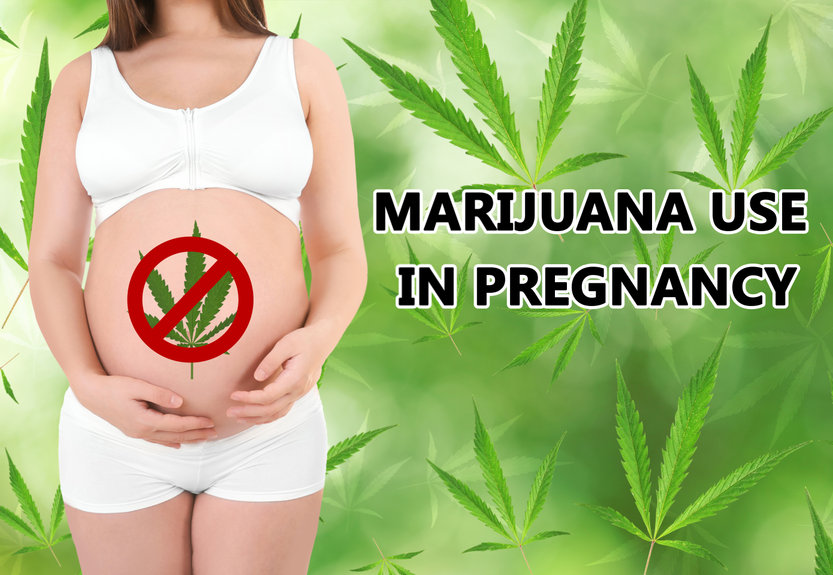
Should you use marijuana if you are pregnant? As a growing number of states legalize the medical and recreational use of marijuana, it’s reasonable to assume there will be an increase of women using marijuana while they’re pregnant. The American College of Obstetricians and Gynecologists (ACOG) estimates between 2 and 5 percent of women use marijuana while they are pregnant. Several studies found that increases to 15-28% among young, urban, socioeconomically disadvantaged women. So, what are the potential consequences to prenatal exposure to marijuana?
A Healthline article, “Cannabis Use During Pregnancy,” said research has linked neurodevelopmental issues such as ADHD and higher levels of stress and anxiety in children whose mothers used marijuana while pregnant. A study published in the Proceedings of the National Academy of Science (PNAS) found a relationship between maternal cannabis use and a higher potential risk for anxiety, aggression and hyperactivity in early childhood. This corresponded with pervasive reductions in immune-related gene expression in the placenta, which has been associated with anxiety and hyperactivity. “Future studies are needed to examine the effects of cannabis on immune function during pregnancy as a potential regulatory mechanism shaping neurobehavioral development.”
Commenting on the study to Healthline, Dr. Jordan Tishler, president of the Association of Cannabinoid Specialists, said: “It surely contributes to our growing knowledge of the risks associated with cannabis use during pregnancy, and further supports the take-home message to women that, at present, our understanding leads us to recommend not using cannabis during pregnancy and breastfeeding.” Dr. Scott Krakower, a child and adolescent psychiatrist, agreed there is a strong correlation between anxiety and marijuana use. However, he said it’s unclear why marijuana users have more anxiety.
That is either because, A, you’re more anxious and you’re more likely to use marijuana, or B, using marijuana is possibly worsening the anxiety over the long run.
A 2011 study, “Lasting impacts of prenatal cannabis exposure,” examined human longitudinal studies that showed the long-term influence of prenatal exposure to marijuana. The researchers concluded that prenatally cannabis-exposed children had cognitive deficits, suggesting that maternal use had interfered with the proper maturation of the brain.
Cannabis consumption during pregnancy has profound but variable effects on offspring in several areas of cognitive development. Most of the information on the long-term consequences of prenatal exposure to cannabis comes from longitudinal studies of the OPPS [Ottawa Prenatal Prospective Study] and MHPCD [Maternal Health Practices and Child Development Study] cohorts. By comparing data from the cohorts, a pattern emerges where maternal cannabis use is associated with impaired high-order cognitive function in the offspring, including attention deficits and impaired visuoperceptual integration.
In Marijuana Use During Pregnancy and Lactation,” the Committee on Obstetric Practice of the ACOG said because of concerns about impaired neurodevelopment, as well as maternal and fetal exposure to the adverse effects of smoking, “women who are pregnant or contemplating pregnancy should be encouraged to discontinue marijuana use.”
Obstetrician–gynecologists should be discouraged from prescribing or suggesting the use of marijuana for medicinal purposes during preconception, pregnancy, and lactation. Pregnant women or women contemplating pregnancy should be encouraged to discontinue use of marijuana for medicinal purposes in favor of an alternative therapy for which there are better pregnancy-specific safety data. There are insufficient data to evaluate the effects of marijuana use on infants during lactation and breastfeeding, and in the absence of such data, marijuana use is discouraged.
Many women who use marijuana continue to do so when they are pregnant (34-60%). A study, “Prevalence and patterns of marijuana use among pregnant and nonpregnant women of reproductive age,” found that 18.1% of pregnant women reporting marijuana use in the past year met the criteria for a substance use disorder. Certainty about the effects of marijuana on pregnancy and the developing fetus is difficult in part because users often use other drugs and in part because of other confounding variables. Marijuana smoke contains many of the same carcinogenic toxins as tobacco smoke. Adverse socioeconomic conditions like poverty and malnutrition can result in outcomes otherwise attributable to marijuana.
Marijuana use alone was not associated with an increased risk of lower birth weight. However, women who used marijuana at least weekly during their pregnancy were at increased risk of giving birth to a newborn weighing less than 5.5 pounds. Several studies noted statistically significant smaller birth lengths and lower birth weights. “These findings were more pronounced among women who used more marijuana, particularly during the first and second trimesters.” The clinical significance of these findings is still uncertain.
Because of concerns of impaired neurodevelopment and maternal and fetal exposure to the adverse effects of smoking, women who are pregnant or considering pregnancy should be encouraged to stop using marijuana. The ACOG gave the following recommendations:
- Before pregnancy and in early pregnancy, all women should be asked about their use of tobacco, alcohol, and other drugs, including marijuana and other medications used for nonmedical reasons.
- Women reporting marijuana use should be counseled about concerns regarding potential adverse health consequences of continued use during pregnancy.
- Women who are pregnant or contemplating pregnancy should be encouraged to discontinue marijuana use.
- Pregnant women or women contemplating pregnancy should be encouraged to discontinue use of marijuana for medicinal purposes in favor of an alternative therapy for which there are better pregnancy-specific safety data.
- There are insufficient data to evaluate the effects of marijuana use on infants during lactation and breastfeeding, and in the absence of such data, marijuana use is discouraged.
In “Cannabis Use in Pregnancy May Lead to a More Anxious, Aggressive Child,” The New York Times noted the findings of the PNAS study added weight to a growing body of evidence linking cannabis use during pregnancy to psychiatric problems in children. A behavioral neuroscientist at Queens College said, “We have a long way to go to educate pregnant women, policymaker and even OB-GYN doctors in this issue.”
Studies have shown that THC can pass through the mother’s bloodstream to the placenta and then to the fetus. This is the case no matter how the cannabis is consumed, whether from smoking it, eating it or being exposed to it through vapors, oils or creams. If they contain THC, “they’re all going to pass through to the baby,” Dr. El-Chaâr said.
Many questions about marijuana use during pregnancy don’t yet have clear answers. For now, Dr. El-Chaâr urged caution. “What I would tell patients is that there’s no known safe amount.”





